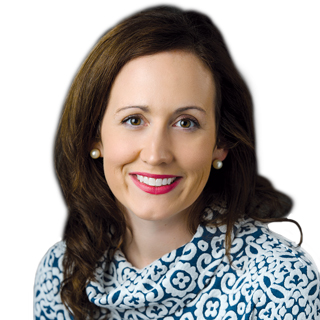
We have hit the jackpot when it comes to neighbors.
Like true L.O.V.E., keeping a watchful eye on each other’s homes and families, informing each other of grocery runs (“What can I pick up for you?”), a bonded group we are.
We have artists, architects, teachers, doctors, business owners, young, old, and above all, we have an interest in sharing lives and creating a true sense of community together.
To ensure we can endure busy family weeks, kiddos consumed with a multitude of activities, and busy careers, we have started a tradition of weekly neighborhood meals.
The themes are always loosely based on the decided day of the week: “Monday Motivation,” “Wine Down Wednesday,” “Thirsty Thursday,” or most recently in the Halloween spirit, “Freaky Friday.”
Each week is also followed by a running list of new house rules.
The most recent include:
Rule #1: Be kind, love one another and all creatures are welcome (wait for my next blog and I’ll explain).
Rule #2: Child Olympic headboard diving prohibited.
Rule #3: No Jiu-Jitsu lessons after dark.
Rule #4: Questionable entry will be granted to anyone who finds pleasure in quoting city code.
I mean, I get it, the codes are needed. But we already know that roosters are not allowed in the city limits, there is a noise ordinance after 11 p.m., and, yes, celebratory birthday sparklers could be a fire hazard if not used safely.
Knowing and doing, however, are two separate things …
In a similar sense, I continue to believe the occasional concerns, regulatory misunderstandings and questions associated with internal policy seen in the post-acute world are often secondary to a general lack of understanding of the rules.
To say, there are regulations, statutes, policy manuals and regionally specific local coverage determinations that provide formal standards for much of the care we provide.
What is the lookback period for Active DX?
What does CMS say again about resident choice in the dining critical element pathways?
When does that QRP measure start? Has it changed? Is the information reported online anywhere?
Furthermore, based on your area of clinical practice, there can be additional state practice acts which must be adhered to for your discipline (i.e. nursing, physical and occupational therapy, and speech-language pathology).
So, what are some of the “go-to” rule sites that I keep bookmarked when I have questions?
For questions on the Patient Driven Payment Model (PDPM), coding accuracy, rules and regulations:
The Centers for Medicare & Medicaid Services’ Patient Driven Payment Model website
- Includes ICD-10 Pathways for Primary Diagnosis, NTA, and SLP Co-morbidities (I8000)
- Training Presentations
- Useful Q and A documents
When you have questions related to and need information to prepare for survey:
CMS Website for Requirements of Participation:
- Includes Critical Element Pathways
- FAQs
- F-Tag Crosswalks
To stay up to date on the SNF QRP:
- Couldn’t make the live trainings and looking for handouts and videos?
In instances when you have MDS coding conundrums and for all areas RAI/MDS related:
Resident Assessment Index (RAI) Manual
- Includes current RAI and change tables
- MDS 3.0 Training Materials
When you are curious as to the rules and regulations specific to your region:
CMS filterable table of state by state Local Coverage Determinations
When you are pondering what the therapy professional societies Medicare pages are.
American Physical Therapy Association
American Occupational Therapy Association
American Speech Language Hearing Association
So, what are your favorites? How do you maintain accuracy in your house rules and ensure that the knowing translates into doing?
Like my growing list of house rules, remember that this one is ever evolving.
So how can you protect your community?
Stay up to date on changes, read and comment on your proposed rules and LCD updates, and empower yourself to first and foremost know the rules!
Renee Kinder, MS, CCC-SLP, RAC-CT, is Vice President of Clinical Services for Encore Rehabilitation and 2019 APEX Award of Excellence winner in Writing–Regular Departments & Columns category. Additionally, she serves as Gerontology Professional Development Manager for the American Speech Language Hearing Association’s (ASHA) gerontology special interest group, is a member of the University of Kentucky College of Medicine community faculty, and is an advisor to the American Medical Association’s Relative Value Update Committee (RUC) Health Care Professionals Advisory Committee (HCPAC).





